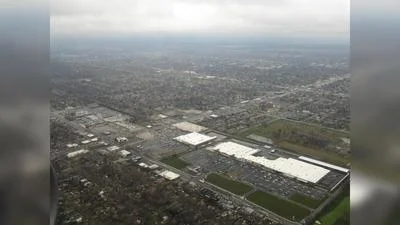Although Chicago is mulling whether to bump the hourly minimum wage for restaurant workers from $6.40 an hour plus tips to the full minimum wage of $13 (and to $15 by 2021), one area activist fears the plan could backfire.
Katie Miller, a District 53 House candidate in 2018, told the South Cook News that a higher minimum wage could wipe out some of the opportunities teenagers have traditionally counted on for spending money.
“I have teenage kids and it's hard for them to get a job — there's not as many jobs out there for them because people have cut off how many people that they hire for all those minimal-skills jobs,” Miller said. “My son does have a job now, but a bunch of his friends couldn’t find jobs.”

Republican Katie Miller, 2018 candidate for Illinois' 53rd District House seat
In Chicago, restaurant owners pay servers $6.40 an hour, plus tips. A Sept. 23 article in The Chicago Tribune mentioned that the latest proposal would require restaurants to pay the city’s current minimum wage of $13 an hour. That figure would climb to $15 over the next two years, instead of the existing 2025 target date.
Proponents say the increase could help stabilize paycheck amounts. A server quoted in the Tribune said her pay ranged from $200 to $700 per week, depending on whether business was brisk.
But if a $13-an-hour minimum is set and tipping is eliminated, it could end up capping server pay on busy nights. Instead of the $700 upper figure that server mentioned, a 40-hour week at $13 an hour would only pay $520. Even at $15, the maximum weekly pay would be $600 for full-time work.
The idea hinges on whether workers want to sacrifice earning potential for stability. For example, a friend of Miller's who worked at a nearby Joe’s Crab Shack told her that particular location experimented with boosting wages while forbidding the practice of tipping. Two things happened, she said: The server told her she earned less money and patrons faced higher menu prices.
That location, Miller noted, is no longer in business.
“You can see at fast-food places they’ve automated ordering,” Miller said. “A lot of those jobs are just going to go away.”





 Alerts Sign-up
Alerts Sign-up